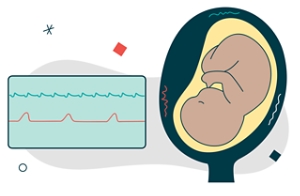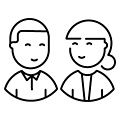Weeks 26 to 30 of Your Pregnancy: Care Instructions
You're starting your last trimester. You'll probably feel your baby moving around more. Your back may ache as
your body gets used to your baby's size and length. Take care of yourself, and pay attention to what your body
needs.
|

Talk to your doctor about getting the Tdap shot. It will help protect your newborn against whooping
cough (pertussis). Also ask your doctor about flu and COVID-19 shots if you haven't had them yet. If
your blood type is Rh negative, you may be given a shot of Rh immune globulin (such as RhoGAM). It can
help prevent problems for your baby.
|

You may have Braxton-Hicks contractions. They are single or several strong contractions without a
pattern. These are practice contractions but not the start of labor.
|
Be kind to yourself.

-
Take breaks when you're tired.
-
Change positions often. Don't sit for too long or stand for too long.
-
At work, rest during breaks if you can. If you don't get breaks, talk to your doctor about writing a
letter to your employer to request them.
-
Avoid fumes, chemicals, and tobacco smoke.
Be sexual if you want to.

-
You may be interested in sex, or you may not. Everyone is different.
-
Sex is okay unless your doctor tells you not to.
-
Your belly can make it hard to find good positions for sex. Experiment and explore.
Watch for signs of preterm labor.

These signs include:
-
Menstrual-like cramps. Or you may have pain or pressure in your pelvis that happens in a pattern.
-
About 6 or more contractions in an hour (even after rest and a glass of water).
-
A low, dull backache that doesn't go away when you change positions.
-
An increase or change in vaginal discharge.
-
Light vaginal bleeding or spotting.
-
Your water breaking.
Know what to do if you think you are having contractions.

-
Drink 1 or 2 glasses of water.
-
Lie down on your left side for at least an hour.
-
While on your side, feel the top of your belly to see if it's tight.
-
Write down your contractions for an hour. Time how long it is from the start of one contraction to the
start of the next.
-
Call your doctor if you have regular contractions.
Follow-up care is a key part of your treatment and safety. Be sure to make and go to all
appointments, and call your doctor if you are having problems. It's also a good idea to know your test results
and keep a list of the medicines you take.
Current as of: July 10, 2023
Content Version: 14.0
Care instructions adapted under license by your
healthcare professional. If you have questions about a medical condition or this instruction, always ask
your healthcare professional. Healthwise, Incorporated disclaims any warranty or liability for your use of
this information.
© 2006-2024 Healthwise, Incorporated.